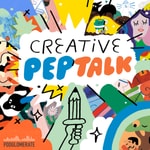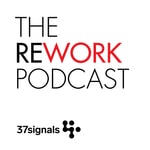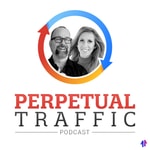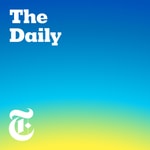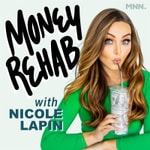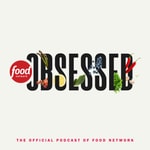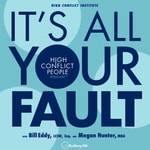Science of Reading: The Podcast – Details, episodes & analysis
Podcast details
Technical and general information from the podcast's RSS feed.
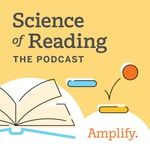
Science of Reading: The Podcast
Amplify Education
Frequency: 1 episode/13d. Total Eps: 163

Science of Reading: The Podcast will deliver the latest insights from researchers and practitioners in early reading. Via a conversational approach, each episode explores a timely topic related to the science of reading.
Recent rankings
Latest chart positions across Apple Podcasts and Spotify rankings.
Apple Podcasts
🇨🇦 Canada - howTo
26/07/2025#10🇺🇸 USA - howTo
26/07/2025#2🇺🇸 USA - education
26/07/2025#75🇨🇦 Canada - howTo
25/07/2025#10🇺🇸 USA - howTo
25/07/2025#2🇺🇸 USA - education
25/07/2025#68🇨🇦 Canada - howTo
24/07/2025#24🇺🇸 USA - howTo
24/07/2025#2🇺🇸 USA - education
24/07/2025#73🇨🇦 Canada - howTo
23/07/2025#16
Spotify
No recent rankings available
Shared links between episodes and podcasts
Links found in episode descriptions and other podcasts that share them.
See all- https://suicidepreventionlifeline.org/
1399 shares
- https://dyslexiaida.org/
38 shares
RSS feed quality and score
Technical evaluation of the podcast's RSS feed quality and structure.
See allScore global : 37%
Publication history
Monthly episode publishing history over the past years.
Summer '24 Interlude E3: Training teachers well from the start, with Lisa Lenhart and Rebecca Tolson
Season 8 · Episode 23
mercredi 21 août 2024 • Duration 51:46
In this Science of Reading: The Podcast episode, Susan Lambert speaks with Rebecca Tolson and Lisa Lenhart about their roles at the University of Akron's newly established Center for Structured Literacy. They discuss their personal journeys in literacy education, the large grant received from the Ohio Department of Higher Education, and how the Center aims to prepare pre-service teachers using the Science of Reading and structured literacy. Rebecca and Lisa elaborate on the faculty’s training program, curriculum updates, and the potential community impact. The conversation also touches on the emotional and professional challenges in shifting to evidence-based practices, the history of literacy legislation in Ohio, and the Center's long-term goals—including IDA accreditation and expanding their impact on both pre-service and in-service educators.
Show Notes
- The Reading League: What is the Science of Reading?
- E-books from the Center for Dyslexia at Middle Tennessee State University
- Ohio’s Dyslexia Guidebook
- Read Ohio Website
- International Dyslexia Foundation: Knowledge and Practice Standards for Teachers of Reading
Quotes
“We're also making sure that our students are prepared in structured literacy, not just to one program, so they're able to understand the structure and adopt it to any program any district is using.” —Lisa Lenhart
“The Center for Structured Literacy is about empowering teachers at the onset—bachelor's degree. If districts have to retrain them after they graduate, then we're not doing something right.” —Rebecca Tolson
‘The more I learn, the better I'm at my craft and my teaching for my students.” —Rebecca Tolson
“It takes the right person leading you and it takes hard conversations of what we believe.” —Lisa Lenhart
Timestamps*
02:00 Introduction: Who is Rebecca Tolson?
04:00 Introduction: Who is Lisa Lenhart?
05:00 Overview: University of Akron Center for Structured Literacy
11:00 Overhauling an undergraduate program
15:00 Origin Story: Center for Structured Literacy
20:00 A Passion for the Science of Reading
23:00 Intersecting goals: Center for Structured Literacy and the state of Ohio
27:00 The importance of training teachers well the first time
33:00 Training teachers to encounter schools with a variety of approaches to literacy
36:00 Long-term goals for the center
39:00 How to get more educators prepared to teach with evidence-based practices
41:00 The importance of having hard conversations
*Timestamps are approximate, rounded to nearest minute
ML/EL E1: Language is always an asset, with Kajal Patel Below
Season 8 · Episode 15
mardi 30 avril 2024 • Duration 51:38
To kick off our miniseries focused on how the Science of Reading serves multilingual/English learners (ML/ELs), Amplify Vice President of Biliteracy Kajal Patel Below joins Susan Lambert for a retrospective discussion of the history of literacy education through a biliteracy lens. Together, they discuss the significance of a recent joint statement put out by The Reading League and the National Committee for Effective Literacy. Below sheds light on why this statement is so monumental, and what it means for serving ML/ELs going forward.
Show notes:
- Joint Statement from The Reading League (TRL) and the National Committee for Effective Literacy (NCEL)
- 2006 Report: Developing Literacy in Second-Language Learners
Quotes:
“It must be acknowledged that there is more scientific research, or there has been more scientific research, conducted with monolingual English-speaking children, and that additional research related to teaching literacy development for English learners and emergent bilinguals is needed to advance our understanding of their literacy development.” —Kajal Patel Below
“We have an underserved area that's experiencing a massive growth in student population. And so it's really important to then focus on it. Schools are adjusting, they're quick, they're doing the best they can, but we need to be having these conversations around research [and] best practices so that we can set schools up for success and students up for success." —Kajal Patel Below
“I just think we have an exciting future in this country. I was in a classroom last week—I saw some of their writing. I saw them speaking, heard them speaking in two languages fluently, easily, excitedly. I just got very excited. These kids are going to be our doctors and our teachers and our engineers and they’re bilingual or multilingual.” —Kajal Patel Below
“Their language is an asset, whatever language it is and however much it is.” —Kajal Patel Below
Episode timestamps*
5:00 Introduction: Who is Kajal Patel Below?
7:00 Terminology: Bilingual vs biliterate; Multilingual/English learners
10:00 History in the US of multilingual learners being underserved
11:00 Multilingualism as an asset
12:00 Importance of messaging
17:00 Advocates for multilingual learners and the science of reading
21:00 Concerns regarding the science of reading movement
25:00 Screening and assessment
31:00 Teacher support and need for better materials
34:00 What is the joint statement?
43:00 Hopes for the future
46:00 Why is this conversation important?
*Timestamps are approximate, rounded to nearest minute
S3-02. Deconstructing the Rope: Word recognition with Alice Wiggins
Season 3 · Episode 2
mercredi 27 janvier 2021 • Duration 39:03
Join Alice Wiggins, vice president of instructional design and products at UnboundEd, in the second episode of our Deconstructing the Rope series as she unwinds word recognition, a strand of Scarborough’s Reading Rope. Alice also highlights the importance of explicit phonics instruction and urges listeners to advocate for an aligned curriculum to bring forth a systematic approach to reading for all students.
Quotes:
“By explicitly teaching sound spellings, we’re strengthening students’ abilities to read so they can learn more.”
“For equity’s sake, we want to teach reading in a way that we cast the widest net possible and support the most students possible.”
Resources:
- UnboundEd
- The Reading Mind: A Cognitive Approach to Understanding How the Mind Reads by Daniel Willingham
Language at the Speed of Sight: How We Read, Why So Many Can't, and What Can Be Done About It by Mark Seidenberg - International Dyslexia Association
- The Reading League
Want to discuss the episode? Join our Facebook group Science of Reading: The Community.
S3-01. Deconstructing the Rope: An Introduction with Dr. Jane Oakhill
Season 3 · Episode 1
mercredi 13 janvier 2021 • Duration 52:43
Dive into our first episode as Dr. Jane Oakhill, Professor of Experimental Psychology at the University of Sussex, gives a high-level overview of Scarborough’s Reading Rope. She also emphasizes the importance of inferencing in comprehension, why the Simple View of Reading is still relevant almost 40 years later, and how each element of the rope comes together to deconstruct the complexity of reading.
Quotes:
“We’re often quite surprised at what children don’t understand and we make a lot of assumptions about things we find utterly trivial.”
“It’s not just having knowledge that’s important, but also being able to activate that knowledge when appropriate.”
Resources:
Understanding and Teaching Reading Comprehension by Jane Oakhill
Want to discuss the episode? Join our Facebook group Science of Reading: The Community.
S2-09. Unveiling insights from assessment data: Danielle Damico
Season 2 · Episode 9
mercredi 30 décembre 2020 • Duration 37:14
Join Danielle Damico, Director of Learning Science at Amplify, as she explores the impact of the pandemic on at-risk students and those in need of intervention. She shares the insights drawn from DIBELS 8th Edition and highlights how data is now more important than ever in understanding where students are—whether assessments are administered in person or through a digital platform. Finally, she leaves our listeners with best practices to nurture readers moving forward and ensure growth and success through the end of the year.
Quotes:
“Teachers and students need the right tools to help accelerate student learning and growth–especially in early literacy.”
“We need to lean on the data we can collect and the science of reading.”
Resources:
Instructional Learning Loss Brief
Amplify Literacy Hub
Want to discuss the episode? Join our Facebook group Science of Reading: The Community.
S2-08. Behind the scenes of the National Reading Panel: Tim Shanahan
Season 2 · Episode 8
mercredi 16 décembre 2020 • Duration 47:46
One of our most popular guests, Tim Shanahan, returns! In our most recent episode, he reminisces about the creation of the National Reading Panel in 1997 and the release of its subsequent groundbreaking report. He highlights how reading instruction has evolved and discusses how new research seems to be changing the landscape of the “reading wars” he thought were settled long ago.
Quotes:
“We continue to learn, and we continue to refine.”
“When people are trying to tell you how you should teach, I think you need to ask some real basic questions about what evidence supports those recommendations.”
Show notes:
- National Reading Panel Report
- The Review of Educational Research Journal
- ERIC, Educational Clearinghouse
- Shanahan on Literacy Blog
- What Works Clearinghouse
Want to discuss the episode? Join our Facebook group Science of Reading: The Community.
Episode timestamps*
01:00: Celebrating the National Reading Panel Report
02:00: Context and history of the National Reading Panel
11:00: The experiences of being a panel member
15:00: Reflections on the panel's work and its legacy
21:00: Current relevance of the nation reading panel report
25:00: Defining the term science within the context of reading and literacy research
35:00: If you were to do the national reading panel again, what would change?
44:00: Advice for Educators and Conclusion
*Timestamps are approximate, rounded to nearest minute
S2-07. Research, comprehension, and content-rich literacy instruction: Sonia Cabell
Season 2 · Episode 7
mercredi 2 décembre 2020 • Duration 53:30
Join Sonia Cabell, Assistant Professor of Education at Florida State University, as she shares findings from her research trials on content-rich literacy curricula and whether activating students’ background knowledge alongside explicit phonics instruction is more effective than traditional approaches. She also explains what constitutes “compelling evidence” in the science of reading and why students need to interact with both written and spoken language while learning to read.
Quotes:
“The knowledge that you have about a particular subject matters for your reading comprehension.”
“When I think about content-rich English language arts, I think about how we can integrate science and social studies into the language arts in ways that make sense.”
Resources:
- Florida Center for Reading Research
- Core Knowledge Language Arts
- Writing Into Literacy TEDx Talk by Sonia Cabell
- National Reading Panel Report 2000
- EdWeek Science of Reading Article by Sonia Cabell
- Special Issue: The Science of Reading: Supports, Critiques, and Questions
- Live with the Author interview
- The Power of Conversations: Building Primary Grade Students’ Vocabulary and Comprehension in a Changing Educational Landscape by Sonia Cabell
- Twitter: @SoniaCabell
Want to discuss the episode? Join our Facebook group Science of Reading: The Community.
S2-06. Fostering growth and instructional change: Kelly Moran
Season 2 · Episode 6
mercredi 18 novembre 2020 • Duration 37:58
Join Kelly Moran, Curriculum Supervisor of Chardon Local Schools in Ohio, as she shares her journey of implementing a curriculum based around the science of reading. Hear about the steps her district took to reshape literacy instructional practices and about the challenges they faced along the way. Find out how the fostering of reading achievement in students renders all efforts worthwhile.
Quotes:
“We’re really taking advantage of every minute of direct, explicit instruction we have with our students.”
“Once we invested the time in professional development and high-quality materials aligned to the science of reading, we could see a difference.”
Resources:
- Why Our Children Can't Read and What We Can Do About It: A Scientific Revolution in Reading by Diane Mcguiness
- Natalie Wexler’s The Knowledge Gap
Want to discuss the episode? Join our Facebook group Science of Reading: The Community.
S2-05: The Right to Read Project on nurturing automatic readers: Margaret Goldberg and Alanna Mednick
Season 2 · Episode 5
mercredi 4 novembre 2020 • Duration 58:00
Join Margaret Goldberg and Alanna Mednick from the Right to Read Project as they address the science of reading and its translation into easy practice for educators. They break down the Seidenberg and McClelland Four-Part Processing Model and explain how it relates to the simple view of reading. They also reflect on how educators should approach reading as scientists and be ready to teach in a way that may be uncomfortable for a time—the “labor of love” stage of literacy instruction.
Quotes:
“We should anticipate reading difficulties and we should be prepared to be able to address them.” —Margaret Goldberg
“We need to go at the pace of the child and we can’t leave anything up to chance.” —Alanna Mednick
Resources:
- The Seidenberg & McClelland Four-Part Processing Model
- Beginning to Read: Thinking and Learning about Print by Marilyn Adams
- Nancy Young’s Ladder of Reading
- Right to Read Project
Want to discuss the episode? Join our Facebook group Science of Reading: The Community.
S2-04. Telling the fuller story: Afrika Afeni Mills
Season 2 · Episode 4
mercredi 21 octobre 2020 • Duration 41:12
Join Afrika Afeni Mills—a leader at BetterLesson—as she discusses how to integrate students’ schemas to nurture language comprehension in early literacy, discuss the difference between asset- and deficit-based teaching, and highlight the impact “windows and mirrors” have on students’ classroom experiences.
Quotes:
“A lot of the foundational work starts by making sure that we’re inquisitive about the resources we’re providing students.”
“We don’t spend enough time thinking about students’ families as their first teachers.”
Resources:
Want to discuss the episode? Join our Facebook group Science of Reading: The Community.
